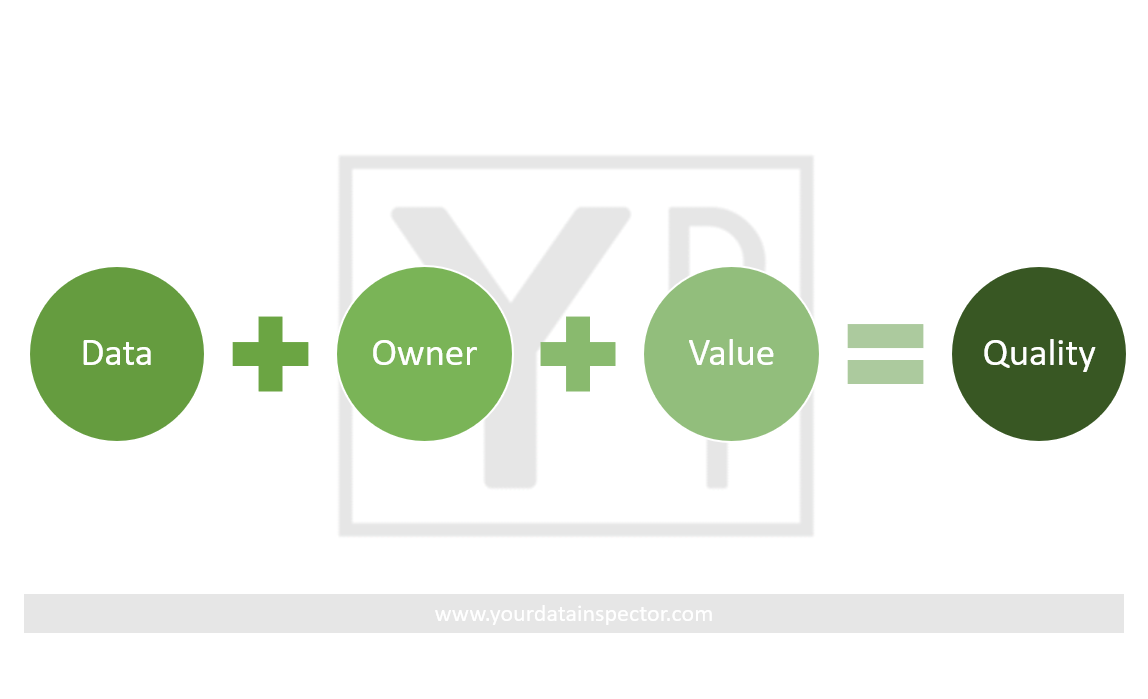Do you know who owns the data that you rely on in your company? Is it one person or a team? Could it be that this ownership is shared across several individuals or teams? Do you know who to ask to fix issues or be accountable in case something goes wrong? We argue, for data to deliver on your purpose, it must have an owner and it must be valuable for the organization.
What makes data valuable
When data becomes valuable is not so easy question to answer. For example, are the Yellow pages valuable to you? After all, each business relies on suppliers and customers. Yellow pages, being a collection of companies, is a database that might at some point prove valuable to you. But, would you trust the printed version of this database, the actual yellow book? Maybe not, even if the edition is fairly recent. Going further, would you use databases in other formats than what you are accustomed to see in your day-to-day business? Finally, if someone lend you such database, i.e. by definition is not yours, would you confidently deploy it in the organization? Would you trust the future of your business on data you do not control?
All these questions lead to our definition for valuable data: if (1) the data is perceived that it can benefit the business; (2) it is recent so that it does not raise questions about how well it represents the reality and (3) is accessible via the standard for the organization tools, we believe it possesses value that the company can exploit.
Data must have internal owner
It is possible to use data that does not have a specific internal owner, of course. And, the reality is that many companies use such data. But this exposes them to a set of challenges. The businesses use data to trigger specific events, either operational or decision making. What happens when these events are not as per the company’s expectation and the culprit is the data that has been used. In this scenario, the users of the data assume the role of data owner and in case of issues, the usual response from the organization is to turn their attention to the owner for justification and responsibility. In these circumstances, the trust in the data is tarnished in an instant despite all the benefits the company might collect if applied correctly. But, more worryingly, the users that unknowingly or unintentionally has assumed the role of data owner could be reprimanded which could have a ripple effect on all analytical or data initiatives and motivation.
Therefore we argue that the best, and safest, approach is to assign a recognized internal owner before deploying any capabilities based on data. When this happens, this individual or team is intrinsically motivated to focus on the data quality as ultimately it is their responsibility. Therefore, for a company to enjoy data that is fit for their purpose, an internal owner is required.
Data must be valuable for the organization
The time of people in the organization is of limited supply. The companies are designed to maximize the effectiveness of their people and resources. What would happen if someone is assigned responsibility for something that is not valuable for the organization? Chances are that this responsibility will not last long. In this respect, data is not, in any way different, from any other resource or capability. Only data that the company recognizes as valuable, will receive enough focus and will be assigned an internal owner who will be motivated to look after its condition.
Therefore in the journey to clean data, the recognition that the data is a valuable is an important step and it should not be assumed or underestimated.
Closing the loop
Data quality can be pushed. The company might choose to undergo improvement projects that will ultimately lead to a good data quality. Or might decide to install processes, procedures or systems that ensure data quality. Chances are that all these will eventually success for a period of time but might cost more than the company expects.
There might be another way. Merely by assigning a dedicated owner of the data, or by proving that the data is valuable, a specific chain of events will be triggered that would lead to good data quality. We believe this is the most sustainable way to approach this topic. If it is chosen, the only question that remains to be answered is how fast the company wants to achieve a state of clean data. This will determine the strategy to employ and the tools to deploy.

